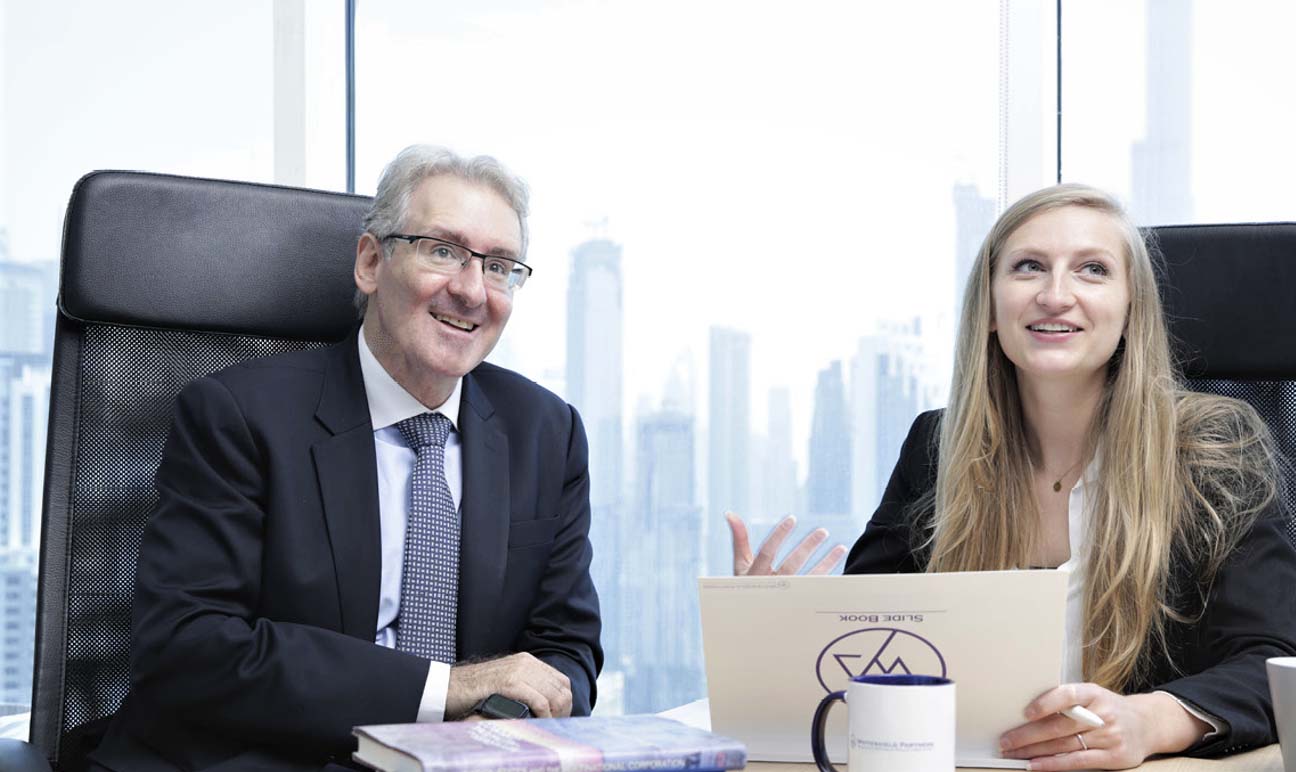
How do you define failure? Ask Fadi Farra, director of global strategy advisory firm and CEMS Corporate Partner, Whiteshield Partners, and he will tell you: failure is the omission of a required action.
Looking at it from this perspective, the CEMS alumnus says, and you can go further and say that failure is the omission of the required action when faced with an imperative to act; to act in response to a crisis, say, like the Covid-19 pandemic.
Covid laid bare two types of failure that Fadi believes businesses and leaders should reflect on and plan for as we emerge into the so-called new normal. First it has exposed a failure of trust. Our world is characterized by certain concentrations of power among the “corporate elite” and policy-makers, he says. The trade-off is higher efficiency and lower cost. But as the broken supply chains and shortages of essential resources at the start of the pandemic demonstrated, decentralisation – a greater dispersion of trust – across our systems is demonstrably more efficient. Look no further than the boom in home-made masks to bridge the short-fall in 2020, he says. Then there’s the failure of resilience.
“Resilience is essentially our ability to absorb shocks, be they economic, social, technological or health shocks. And the pandemic revealed a widespread lack of resilience in sectors and organisations, that ties to a certain short-termism in the way we think and plan – quarter by quarter, instead of year over year or longer.”
Trust and resilience, winners and losers
The pandemic has taught us the value of trust – of getting trust right, says Fadi. As remote working shifted organisational cultures away from hierarchies and towards networks, we saw a decentralisation of decision-making that worked well in response to the exigencies of the crisis. As for resilience, we learned the importance of seeing the bigger picture, he says; not just in terms of long-term vision, but also in the sense of connecting the dots between different areas of focus.
“Businesses suddenly had to grapple with disruption to operations, supply chains and ways of working. But they also had to think about shifts in customer behaviours, other companies and policy-makers that arose from the pandemic.”
How organisations fared during the crisis – whether they failed or thrived – was and remains largely contingent on whether they are survivors or opportunity-grabbers; whether they hunkered down, cut costs and attempted to ride out the storm without changing their business model, or whether they adapted to the new normal.
“What the opportunity-grabbers have in common – those organisations that were able to pivot and adapt and create new business models in the face of the crisis – is that they put human beings at the centre of their focus,”
says Fadi. “They made a shift from the hierarchy to the network, and balanced trust across that network, making them more agile and more resilient to the slew of challenges Covid threw at us.”
De-centralising trust to re-invent trade
The same is true of those countries that have fared better than others, says Fadi’s colleague, Merthe Weusthuis, Young Policy Leader at Whiteshield and also a CEMS graduate (2021).

Countries that have put their people at the centre and empowered them with education, innovation and entrepreneurship and health systems, have seen that their citizens have been much more resilient to the crisis, she notes.
They are also those countries that are open to trust-based collaboration. And this is where Whiteshield Partners has an interesting role to play.
“Coming out of the crisis, we are looking at ways to build greater trust and resilience into global trade to drive the kinds of economic outcomes that will undergird recovery. Forwardthinking countries are really open to this, and we are currently working on a network-based project with 12 governments around the globe, using technologies like blockchain and cryptocurrency to decentralize and effectively democratise data and resource sharing, and use this as a way of opening up more trust and greater collaboration, as well as resilience, between and among trading partners.”
The core idea of this project is to create a network dynamic that effectively re-invents trade, says Merthe. By replacing competition with collaboration, we get to a sort of trade 2.0.
“Countries don’t compete in our project, they collaborate so that instead of a zero-sum game, everyone wins. And we are using sharing technologies to support this idea and engender trust across the network.”
Interestingly, within Whiteshield Partners, the team working on this project have also used a decentralised approach to working together, adds Fadi.
“Putting this project together as a company under the restrictions of Covid meant bringing in the talent from within and outside the company and establishing fast trust. The way we ended up working mirrors the trade project in the sense that we had to decentralize governance and form hubs across different geographies, making our own decisions and sharing results.”
Leveraging the power of the network
Adopting this approach – building a decentralized network of collaboration that spans expertise from around the globe – to drive the project forward was, says Fadi, a function of Whiteshield’s understanding of the power of the network.
The company has historically understood the value of leveraging diverse expertise and optimising its work through open collaboration.
“From our inception on the campus of Harvard University with our OECD partners through to today, Whiteshield has always deployed the network approach, bringing in its people from the worlds of academia, consultancy and developmental organisations, and trusting those people. And it’s an approach that we have deployed successfully with our clients – with the governments that we work with: working as a network with their airports, the ports, the schools as well as their civil servants, to drive innovation together, equally.”
For Merthe, the willingness of the governments that Whiteshield works with to embrace the network dynamic and to be open to working with collaborative technologies is a cause for “great optimism.”
“Coming out of Covid and seeing this kind of openness to trust and willingness to use Blockchain and cryptocurrencies within the public sector is great. It’s encouraging to see innovation being embraced by players who are not just in the private sector.”
Time to rethink the fundamentals in the Age of Data
But there is still a long way to go, cautions Fadi. The prevailing paradigms of governments are essentially still sovereign. Things like GDP, balance of payments and so on are performance metrics that are not adapted to a network approach, he notes; one that transcends borders and nationalism. To enact a true network approach, you have to go down to the level of the individual organisation and the citizen. And that’s a metric still to be invented.

“We are currently working on a publication that aims to rewire the whole foundation of public policy and that advocates the use of new metrics – metrics that make more sense in the age of data and that are not tied to the age of capital, land and labour.”
The crisis is an opportunity to rethink the fundamentals, says Fadi. It’s a chance to update our understanding of the value of open collaboration and to build trust and resilience into policy and processes, trade and governance; to assert the primary importance of the quantum and not the sovereign – the individual citizen or organisation – in an era that is defined by digital disruption and innovation.
What might undermine our effort to realise this opportunity, he warns, is us. The age-old game of competition versus collaboration, and the urge for influence and unilateral gain, and the short-term time horizons that still dominate the thinking of companies, institutions and organisations – these are among the greatest challenges that we continue to face, and that continue to set us up for failure as he defines it.
“We have an amazing opportunity ahead of us to shift from sovereign systems to systems of collaboration. We can make the shift from currencies to cryptocurrencies; from the old metrics that we use to measures performance – labour, education, health – to a more holistic approach that looks at the whole country. We can afford to be much more fluid in terms of technology integration in the way that we work and the way that large organisations collaborate with more agile operators. There are many opportunities ahead of us to look at the crisis, learn from it and enact a reset in our thinking, our systems and processes. It’s up to us.”
